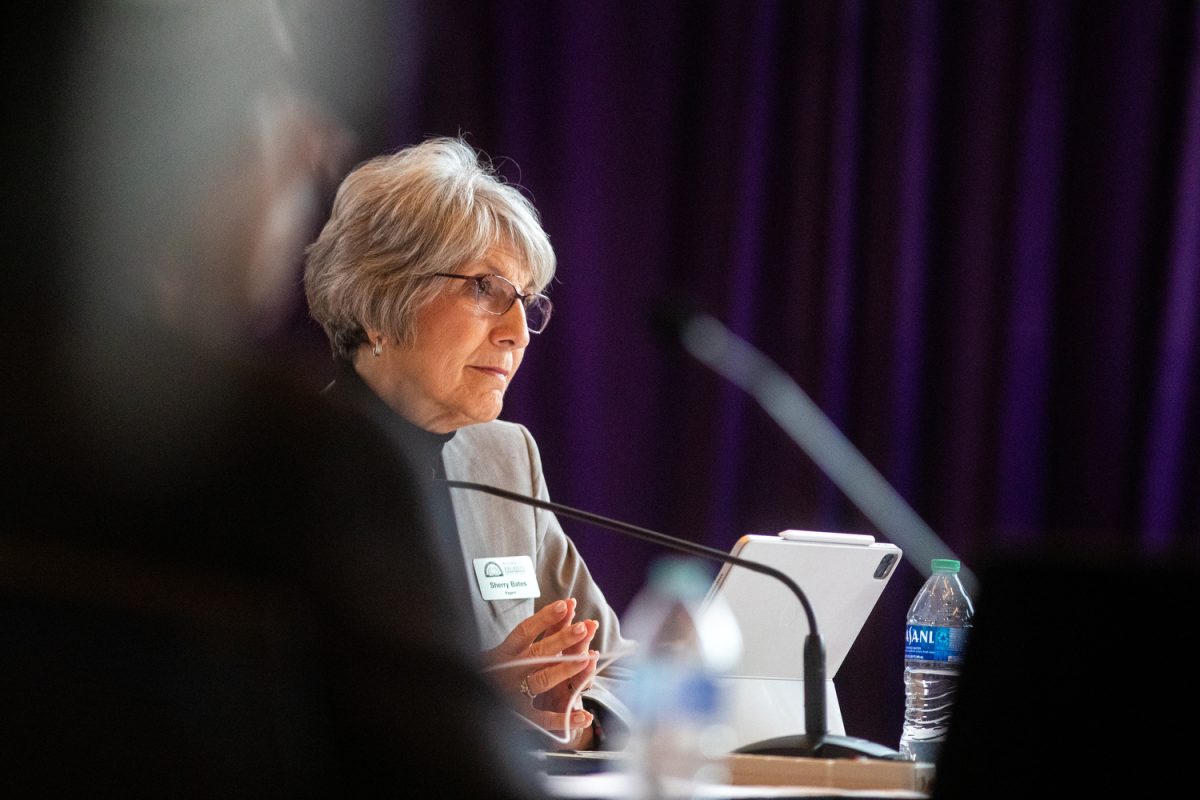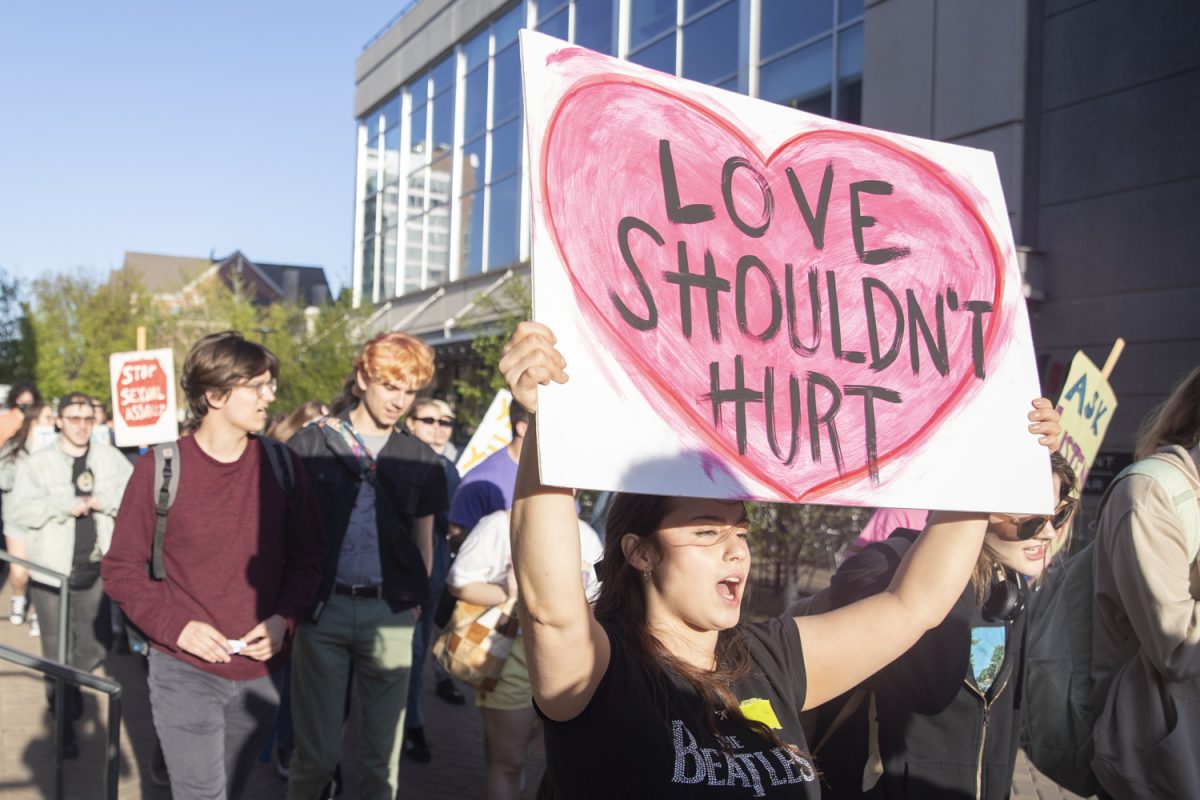Graduate students at the University of Iowa are tired of “paying to work.”
The Campaign to Organize Graduate Students, a local union that represents graduate-assistant employees, met Monday with the state Board of Regents to negotiate the UE/COGS collective-bargaining agreement.
Though no agreement was reached Monday night, the parties will have until Feb. 20 to negotiate. The agreement governs conditions of employment for graduate assistants and is negotiated every two years.
This time, COGS officials are demanding a change: They want mandatory student fees and tuition covered by graduate-student wages.
“Our No. 1 priority in our contract negotiations is to get the university and regents to talk about fees,” said Jason Whisler, the president of COGS. “It’s tuition with another name, and they’ve been unwilling to talk about it.”
The regents approved the set fees for the 2013-14 school year at their December telephonic meeting. Graduate liberal arts and sciences students who are taking nine or more semester hours are expected to pay $708.50 in fees. This year, students paid $706.50.
COGS delivered a petition with nearly 800 signatures to UI President Sally Mason’s office on Feb. 1 as part of an effort to “Bill the U” for the fees.
Now, the group is in the final stage of negotiations with the regents, and COGS members aren’t sure whether the negotiations will be successful.
Sarah Eikleberry, the green area chief steward and member of the COGS Bargaining Committee, thought recent developments in collective bargaining across the country have left the regents less willing to negotiate.
“Unfortunately, the political tenor toward unions has become more combative,” she said. “The political climate has influenced this process, making [the university and the regents] less interested in moving to the middle.”
Whisler was more optimistic.
“We’re still hopeful we can reach a tentative agreement,” he said. “But they have to give us a fair contract or this will end up in arbitration.”
The arbitration process, which will be triggered if the groups are unable to come to an agreement, involves an independent judge looking over the positions of both COGS and the regents, and making a decision on the contract. The arbitration date is set at Feb. 20.
Bill Peterson, an adjunct assistant professor of physics and former COGS president, said he wasn’t aware of any time in the organization’s history that negotiations had gone to arbitration.
“The idea of arbitration makes it so [the UI and regents] have to negotiate. But it could go badly for either side,” he said.
While the negotiations may eventually come to it, Peterson says the two groups would be wise to try to solve their issues beforehand.
“If you’re sitting in the negotiating room and say you want to go to arbitration, you’d be a dummy,” he said. “It’s a last resort.”
Whisler said he also thinks the burden on undergraduates should be reduced.
“As a progressive union, we believe in affordable education for all,” he said. “As happy as in-state undergrads were [about the decision to freeze in-state tuition], we wish the tuition freeze applied to out of state and graduate students. While they may plan for tuition, increases in mandatory fees puts an additional burden on students.”
UI Student Government President Nic Pottebaum had doubts about the effort to eliminate student fees.
“The revenue has to come from somewhere, and you’d presume graduate students or undergrads will have to pay,” he said. “I’m curious where they think the money would be made up.”





